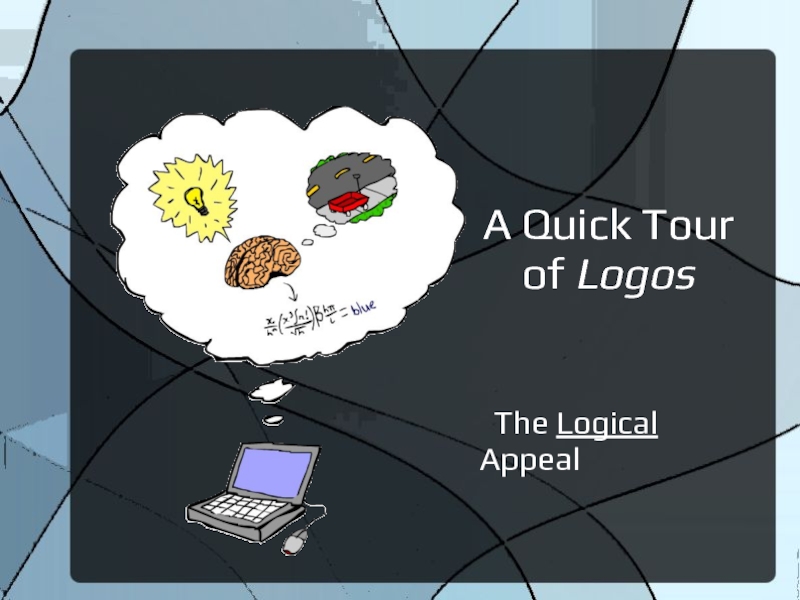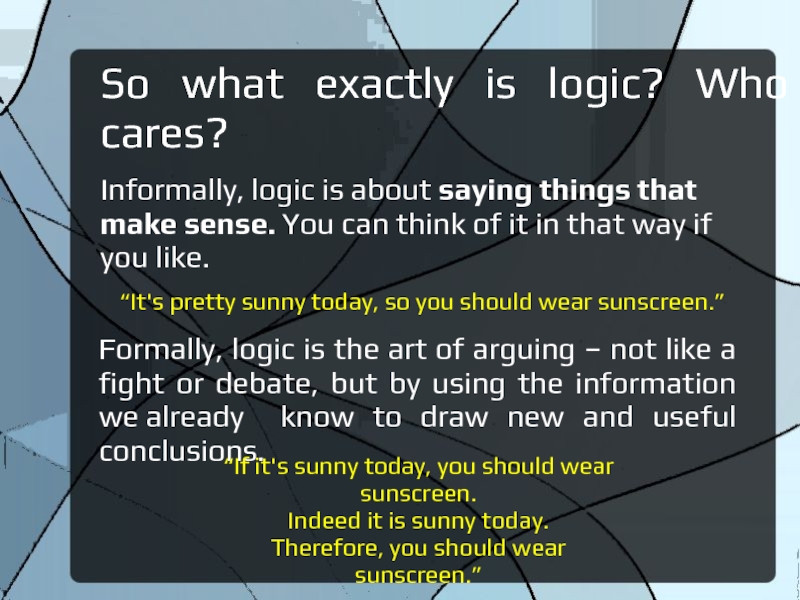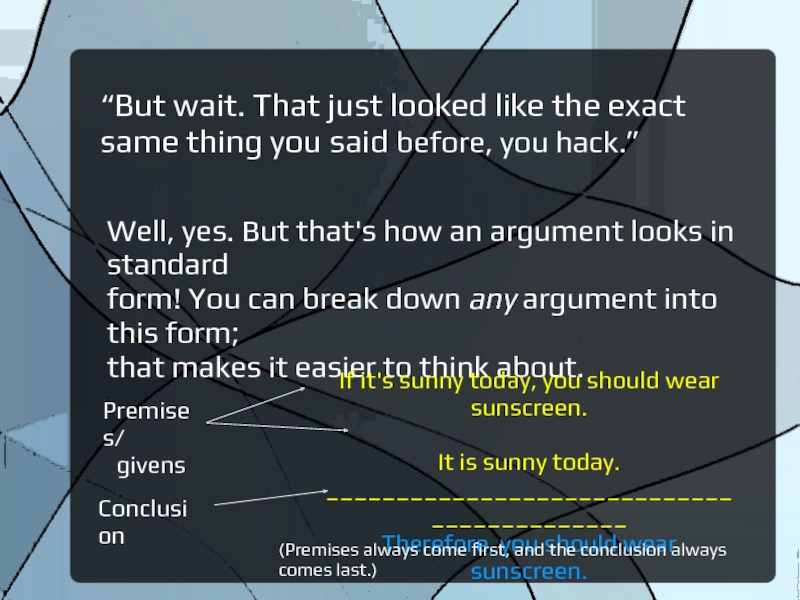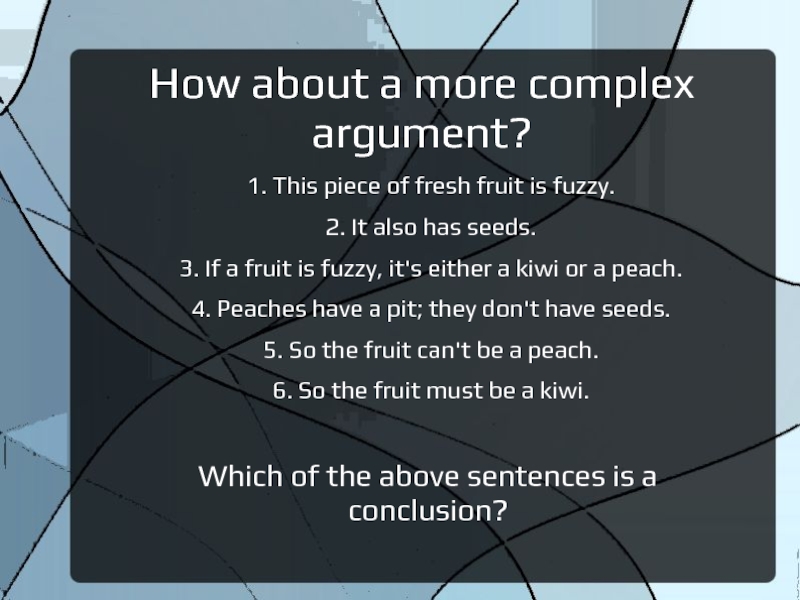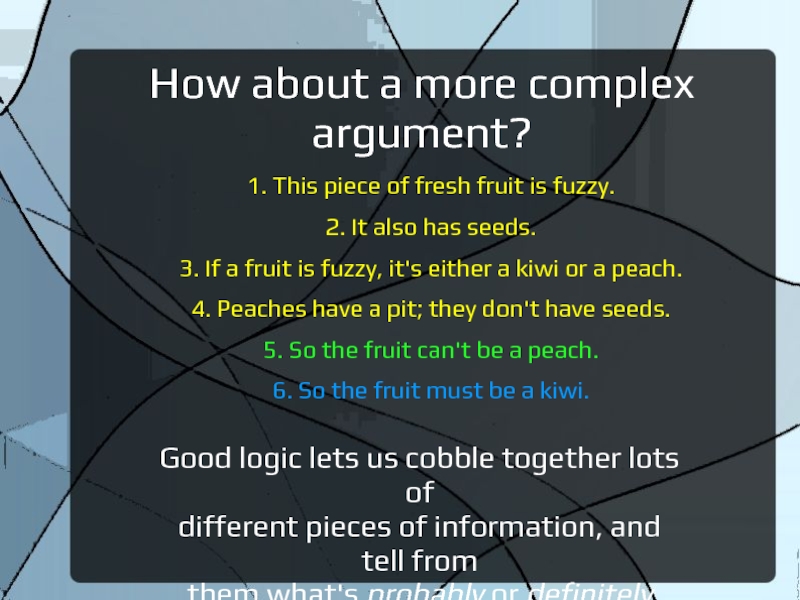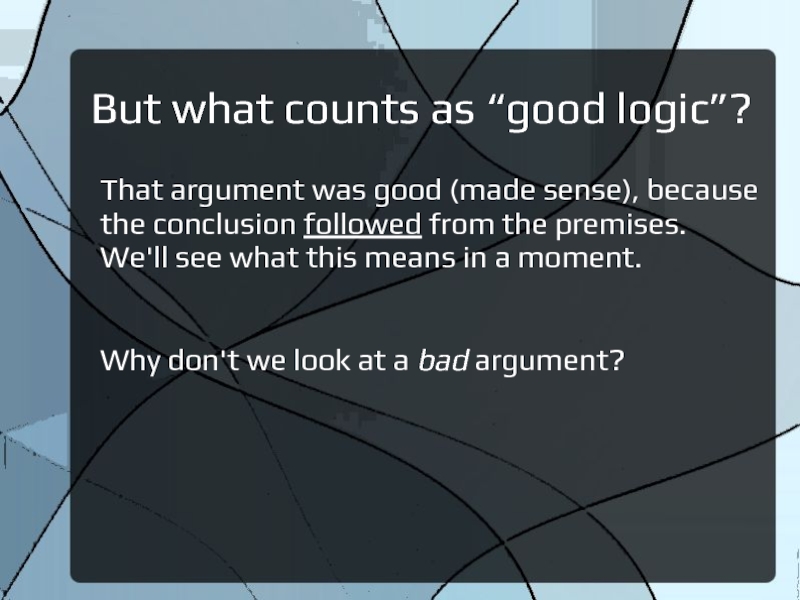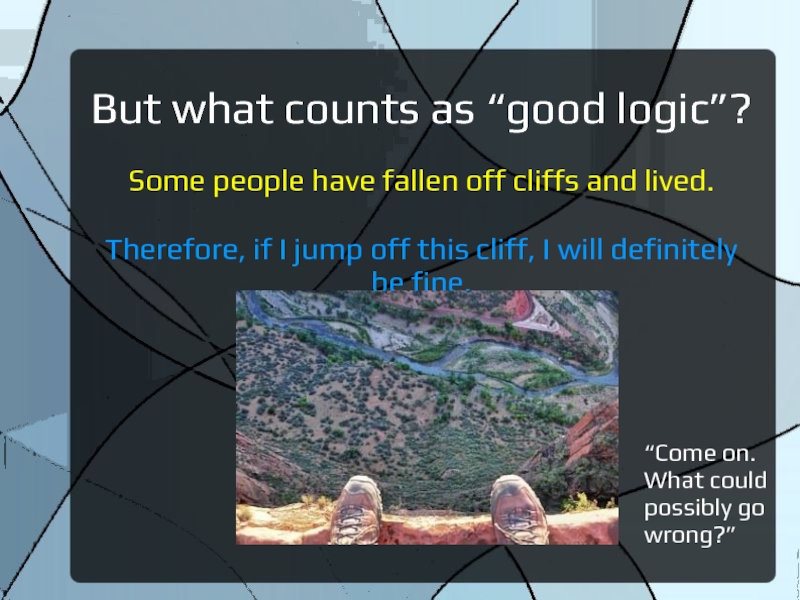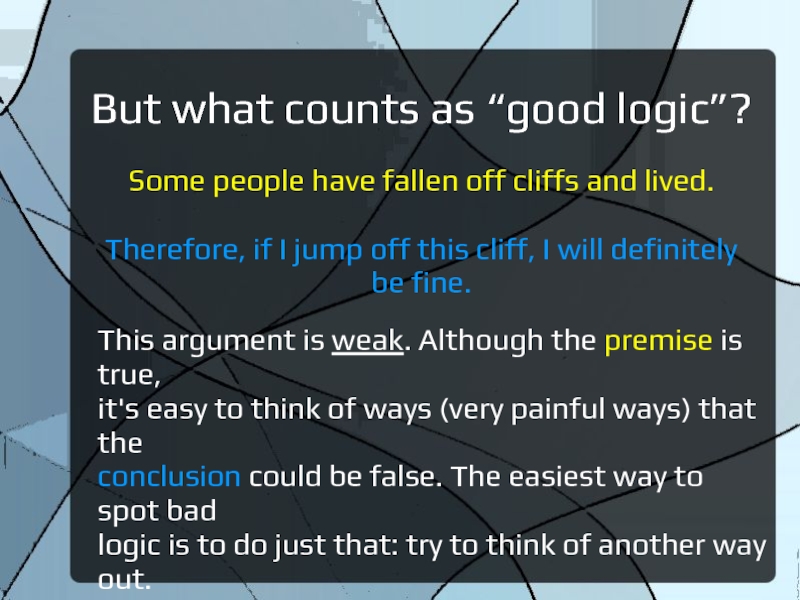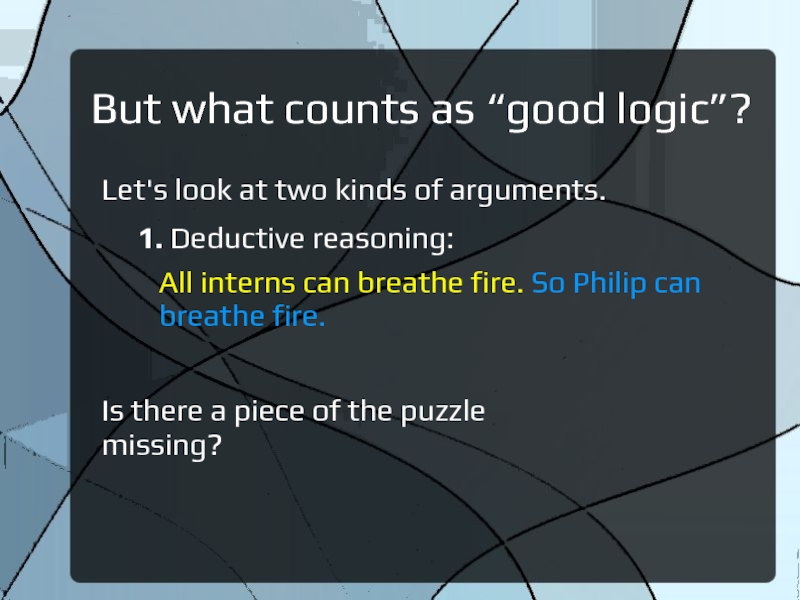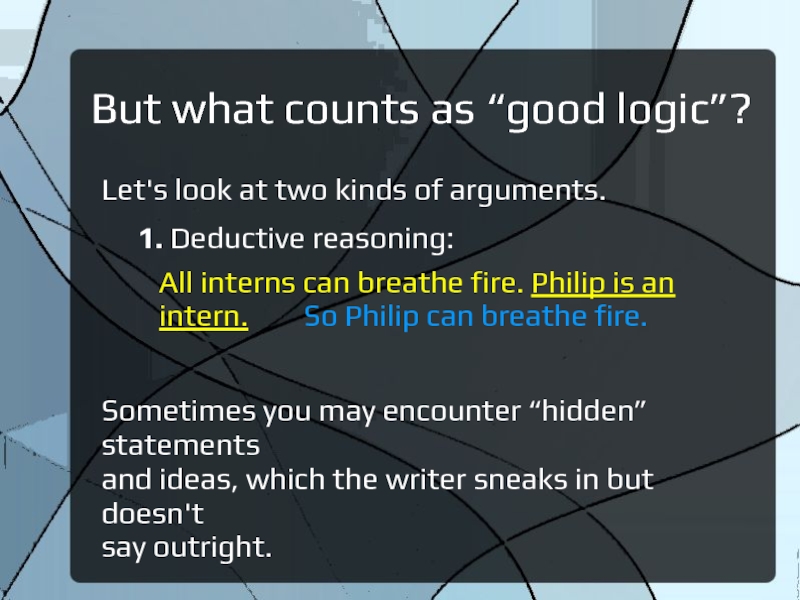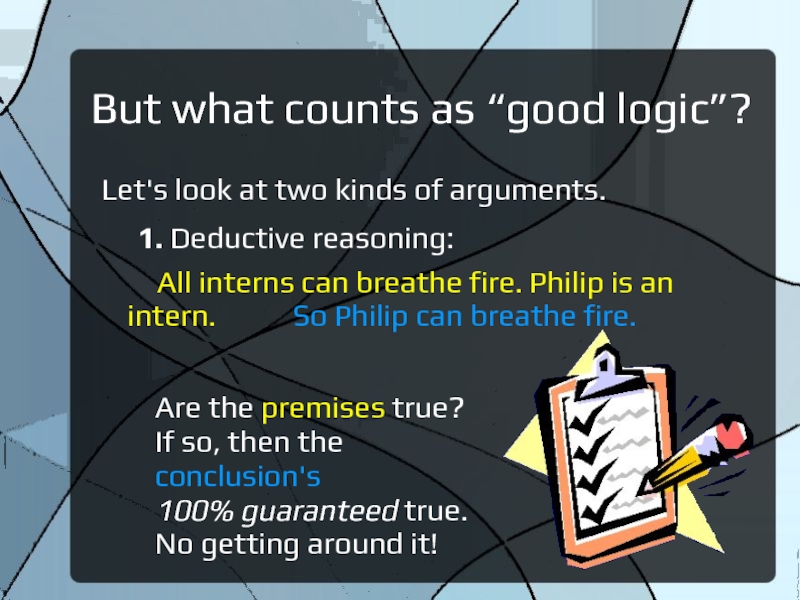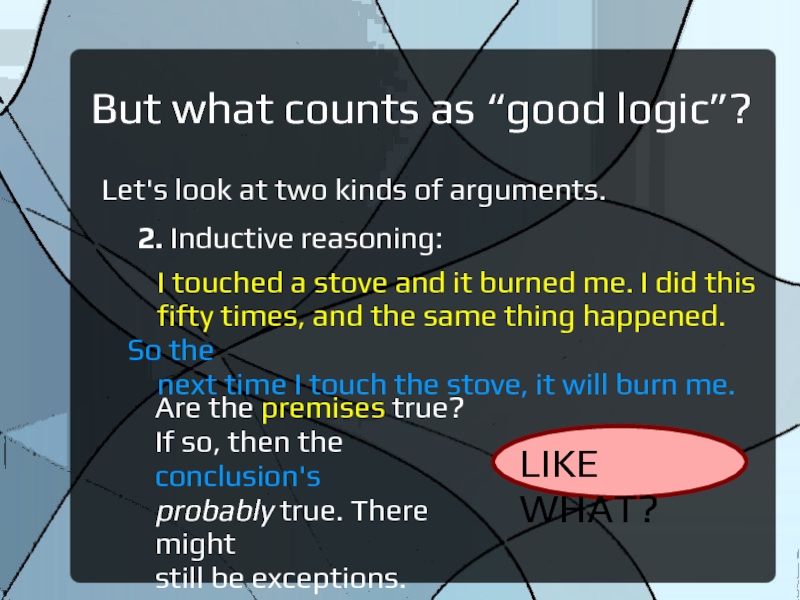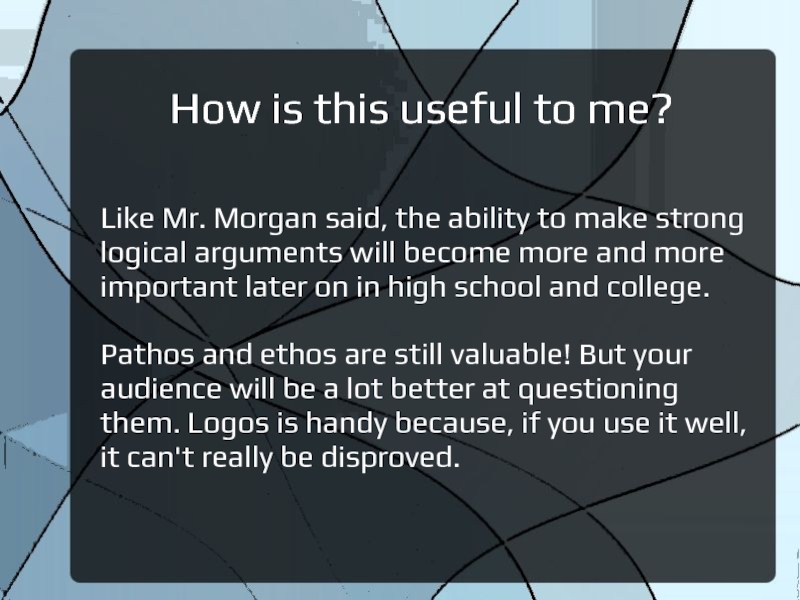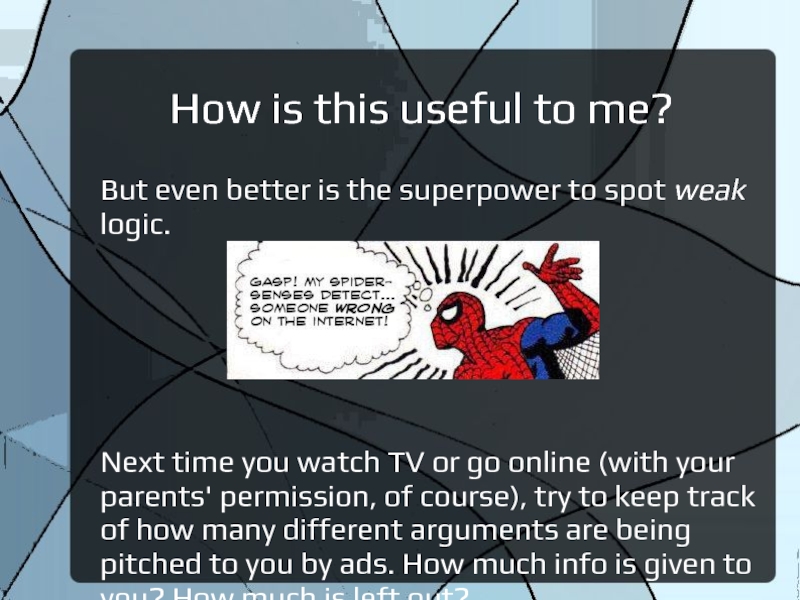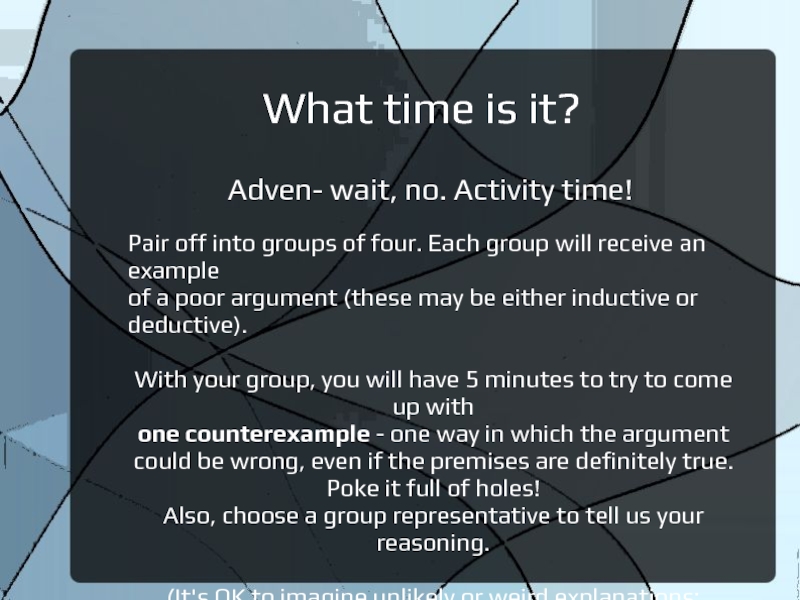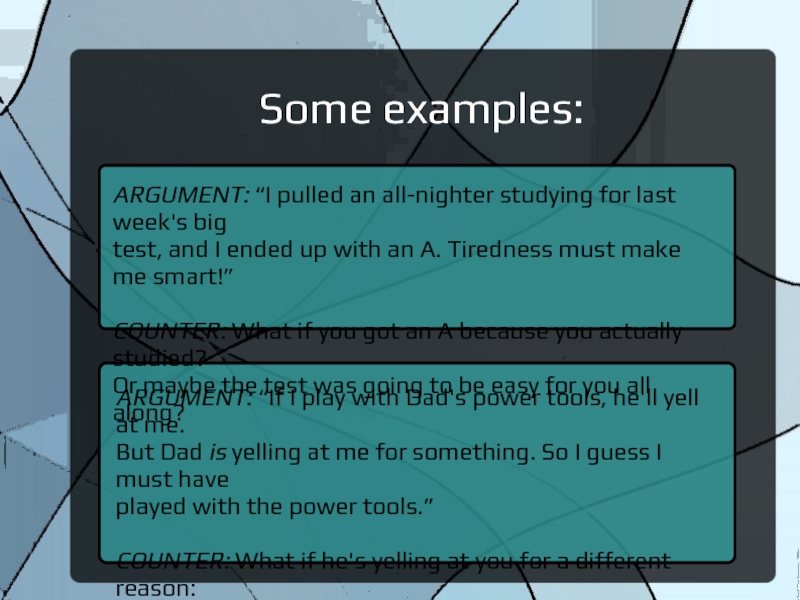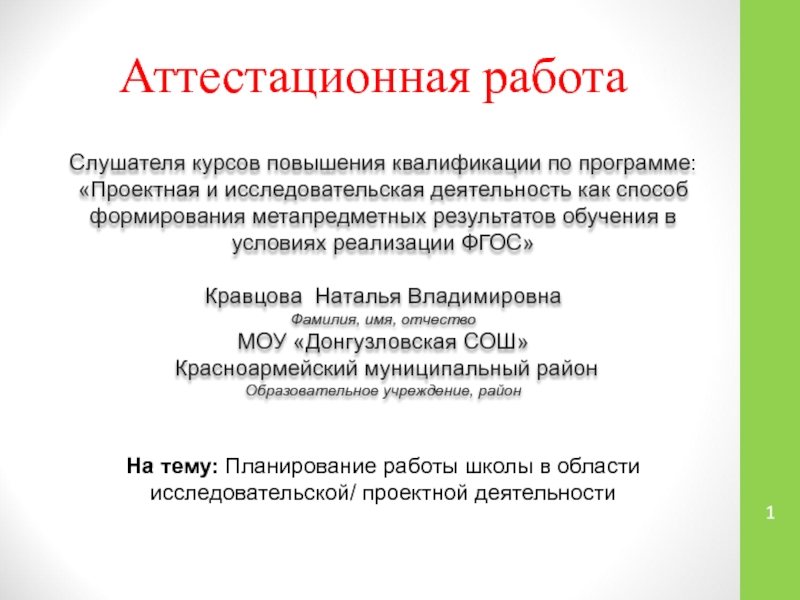- Главная
- Разное
- Дизайн
- Бизнес и предпринимательство
- Аналитика
- Образование
- Развлечения
- Красота и здоровье
- Финансы
- Государство
- Путешествия
- Спорт
- Недвижимость
- Армия
- Графика
- Культурология
- Еда и кулинария
- Лингвистика
- Английский язык
- Астрономия
- Алгебра
- Биология
- География
- Детские презентации
- Информатика
- История
- Литература
- Маркетинг
- Математика
- Медицина
- Менеджмент
- Музыка
- МХК
- Немецкий язык
- ОБЖ
- Обществознание
- Окружающий мир
- Педагогика
- Русский язык
- Технология
- Физика
- Философия
- Химия
- Шаблоны, картинки для презентаций
- Экология
- Экономика
- Юриспруденция
A Quick Tourof Logos презентация
Содержание
- 1. A Quick Tourof Logos
- 2. So what exactly is logic? Who cares?
- 3. “But wait. That just looked like the
- 4. How about a more complex argument? 1.
- 5. How about a more complex argument? 1.
- 6. But what counts as “good logic”? That
- 7. But what counts as “good logic”? Some
- 8. But what counts as “good logic”? Some
- 9. But what counts as “good logic”? Let's
- 10. But what counts as “good logic”? Let's
- 11. But what counts as “good logic”? Let's
- 12. But what counts as “good logic”? Let's
- 13. How is this useful to me? Like
- 14. How is this useful to me? But
- 15. What time is it? Adven- wait, no.
- 16. Some examples: ARGUMENT: “I pulled
Слайд 2So what exactly is logic? Who cares?
Informally, logic is about saying
“It's pretty sunny today, so you should wear sunscreen.”
Слайд 3“But wait. That just looked like the exact same thing you
Well, yes. But that's how an argument looks in standard
form! You can break down any argument into this form;
that makes it easier to think about.
If it's sunny today, you should wear sunscreen.
It is sunny today.
___________________________________________
Therefore, you should wear sunscreen.
(Premises always come first, and the conclusion always comes last.)
Слайд 4How about a more complex argument?
1. This piece of fresh fruit
2. It also has seeds.
3. If a fruit is fuzzy, it's either a kiwi or a peach.
4. Peaches have a pit; they don't have seeds.
5. So the fruit can't be a peach.
6. So the fruit must be a kiwi.
Which of the above sentences is a conclusion?
Слайд 5How about a more complex argument?
1. This piece of fresh fruit
2. It also has seeds.
3. If a fruit is fuzzy, it's either a kiwi or a peach.
4. Peaches have a pit; they don't have seeds.
5. So the fruit can't be a peach.
6. So the fruit must be a kiwi.
Good logic lets us cobble together lots of
different pieces of information, and tell from
them what's probably or definitely true.
Слайд 6But what counts as “good logic”?
That argument was good (made sense),
Why don't we look at a bad argument?
Слайд 7But what counts as “good logic”?
Some people have fallen off cliffs
Therefore, if I jump off this cliff, I will definitely be fine.
“Come on.
What could
possibly go
wrong?”
Слайд 8But what counts as “good logic”?
Some people have fallen off cliffs
Therefore, if I jump off this cliff, I will definitely be fine.
This argument is weak. Although the premise is true,
it's easy to think of ways (very painful ways) that the
conclusion could be false. The easiest way to spot bad
logic is to do just that: try to think of another way out.
(Philosophers call these counterexamples).
Слайд 9But what counts as “good logic”?
Let's look at two kinds of
1. Deductive reasoning:
All interns can breathe fire. So Philip can breathe fire.
Is there a piece of the puzzle missing?
Слайд 10But what counts as “good logic”?
Let's look at two kinds of
1. Deductive reasoning:
All interns can breathe fire. Philip is an intern. So Philip can breathe fire.
Sometimes you may encounter “hidden” statements
and ideas, which the writer sneaks in but doesn't
say outright.
Слайд 11But what counts as “good logic”?
Let's look at two kinds of
1. Deductive reasoning:
All interns can breathe fire. Philip is an intern. So Philip can breathe fire.
Are the premises true?
If so, then the conclusion's
100% guaranteed true.
No getting around it!
Слайд 12But what counts as “good logic”?
Let's look at two kinds of
2. Inductive reasoning:
I touched a stove and it burned me. I did this
fifty times, and the same thing happened. So the
next time I touch the stove, it will burn me.
Are the premises true?
If so, then the conclusion's
probably true. There might
still be exceptions.
Слайд 13How is this useful to me?
Like Mr. Morgan said, the ability
Pathos and ethos are still valuable! But your audience will be a lot better at questioning them. Logos is handy because, if you use it well, it can't really be disproved.
Слайд 14How is this useful to me?
But even better is the superpower
Next time you watch TV or go online (with your parents' permission, of course), try to keep track of how many different arguments are being pitched to you by ads. How much info is given to you? How much is left out?
Слайд 15What time is it?
Adven- wait, no. Activity time!
Pair off into groups
of a poor argument (these may be either inductive or deductive).
With your group, you will have 5 minutes to try to come up with
one counterexample - one way in which the argument
could be wrong, even if the premises are definitely true.
Poke it full of holes!
Also, choose a group representative to tell us your reasoning.
(It's OK to imagine unlikely or weird explanations;
don't be afraid to think outside the box.
Oddly enough, logic has very little to do with facts.)
Слайд 16
Some examples:
ARGUMENT: “I pulled an all-nighter studying for last week's big
test,
COUNTER: What if you got an A because you actually studied?
Or maybe the test was going to be easy for you all along?
ARGUMENT: “If I play with Dad's power tools, he'll yell at me.
But Dad is yelling at me for something. So I guess I must have
played with the power tools.”
COUNTER: What if he's yelling at you for a different reason:
scratching the car, or hammer-throwing the cat onto the roof?
